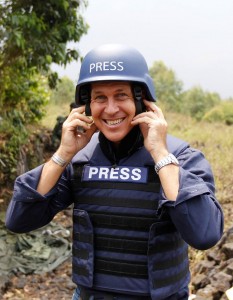Silenced in court – Deaths and detentions continue to threaten freedom of expression
Posted by: Nick Mosdell

On Friday, Cardiff School of Journalism Media and Cultural Studies welcomes recently released al-Jazeera journalist Peter Greste who will talk about his experience of imprisonment in Egypt on charges of abetting the banned Muslim Brotherhood.
The campaign for his release centred on the freedom to report and on freedom of expression, concepts that have been vividly re-examined following the tragic events last month in Paris. This will no doubt continue in the wake of an attack on a free speech debate in Copenhagen attended by Danish cartoonist Lars Vilks, who himself has faced death threats since the publication of his caricatures of the Prophet Mohammed.
The scenario of journalists being killed while at work, because of their work, is not a new one; for example last year Mexican radio host Atilano Roman was shot dead during a live broadcast. Earlier this year the International News Safety Institute released the annual Killing the Messenger report which showed that 105 journalists died during 2014, 39 in counties where there is no explicit conflict. More than half of all casualties were murdered.
These are deliberate attempts to silence potentially critical reporting, whether by criminal organisations, political parties, or regimes and states engaged in violent struggle to assert themselves. Last year also saw the horrific executions of journalists James Foley and Steven Sotloff, among other Western hostages, broadcast by Islamic State in a chilling attempt to demonstrate their commitment to establishing a Caliphate in the Middle East.
What was new and shocking about the Charlie Hebdo attacks was that they took place in Europe, in a country not overtly at war and with relative freedom of movement across borders. World leaders gathered in Paris to show their solidarity for freedom of expression and their outrage at the actions of the killers, but some observers were less than convinced by this demonstration given the record of the various attendees on press freedom in their own countries, as shown by this spectacular “Twitter Takedown”.
The charges levelled against journalists who are imprisoned are often equally dubious. Welsh journalist Gareth Montgomery-Johnson and his colleague Nicholas Davies-Jones were detained by a militia group in Libya in 2012 and subsequently handed over to the National Government to face accusations of spying for the Israelis. While it was true that the pair didn’t have the correct visas, the main evidence for the espionage charges appeared to be the possession of maps and cameras – fairly standard kit for an overseas correspondent – and of bandages inscribed in Hebrew (it was in fact Welsh). They were deported after four weeks of imprisonment and death threats.
Peter Greste and his colleagues were charged and sentenced for promoting and belonging to a terrorist organisation. They deny all charges on the grounds that they were simply reporting the news. He was freed after 400 days and deported earlier this month, but Mohamed Fahmy and Baher Mohamed remain on remand, despite the highest appeals court ruling that the initial trial contained flawed and incomplete evidence and issuing a damning report into the whole process.
In their 2014 report The Committee to Protect Journalists suggested that 221 journalists were in prison worldwide.
The arguments over satire versus offense, of rights of expression versus rights of respect, of investigative reporting versus national security are frustratingly complex. The debates around whether it can ever be justifiable to take away liberty, or life, as a consequence are no less important.
